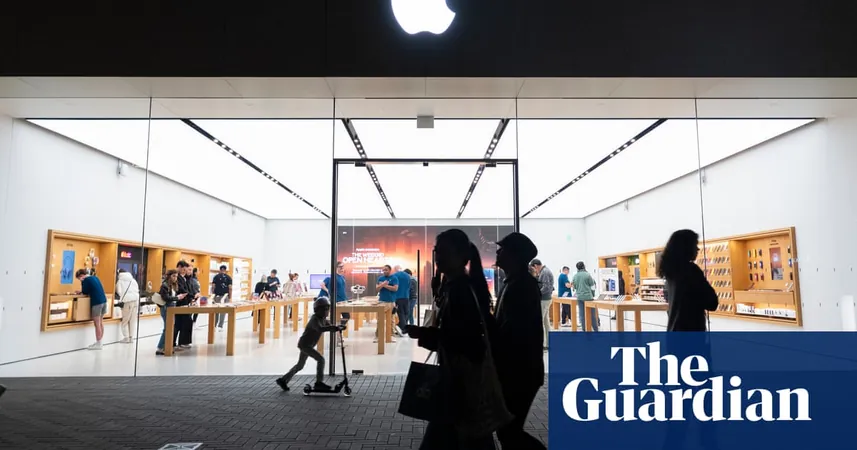
Apple's U.S. Manufacturing Dreams: White House vs. Reality
2025-04-10
Author: Yan
The White House is pushing a bold vision: that Apple's flagship iPhones will soon be manufactured on U.S. soil. Despite skepticism from analysts and Apple itself, the administration insists this dream can become a reality.
During a press briefing, White House Press Secretary Karoline Leavitt emphasized President Trump's belief that Apple's recent $500 billion investment, combined with rising import costs due to trade tariffs, would motivate the tech giant to increase domestic manufacturing. "He believes we have the labor, workforce, and resources to make this happen," she asserted.
President Trump reinforced this idea on his Truth Social platform, urging companies like Apple to consider moving operations to the U.S., citing advantages like zero tariffs and quicker electrical and energy setups.
However, industry experts, including Apple CEO Tim Cook, paint a different picture. They point out that a significant barrier exists: the U.S. lacks the workforce capacity of countries like China, which currently produces about 85% of iPhones, as well as emerging manufacturing hubs in India and Vietnam.
Howard Lutnick, former Commerce Secretary under Trump, recently suggested that a transformation in U.S. production was on the horizon, envisioning American workers taking on assembly roles traditionally filled by millions in other countries. But this rosy outlook faces challenges.
Steve Jobs had already voiced concerns as far back as 2010 about the U.S.'s ability to supply the needed workforce. In conversations with President Obama, he noted that Apple's operations in China require a massive workforce of 700,000 factory employees along with 30,000 engineers for support—resources he claimed the U.S. simply cannot match.
More recently, Tim Cook himself echoed this sentiment, stating that while cost is a factor, the primary reason for manufacturing in countries like China lies in the high skill level and precision available there. He noted the U.S. struggles to gather enough qualified tooling engineers, highlighting a stark contrast between workforce expertise in China versus the U.S.
Experts are skeptical of the White House's assertions that tariffs will lead to a surge in U.S. manufacturing by Apple. Laura Martin, a senior technology analyst, commented on CNBC that such a transition would take years, as indicated by India's slow climb to 14% of Apple's iPhone volumes over three years.
As the debate rages on, the future of Apple's manufacturing plans hangs in the balance, caught between presidential ambition and the hard realities of global production economics.



 Brasil (PT)
Brasil (PT)
 Canada (EN)
Canada (EN)
 Chile (ES)
Chile (ES)
 Česko (CS)
Česko (CS)
 대한민국 (KO)
대한민국 (KO)
 España (ES)
España (ES)
 France (FR)
France (FR)
 Hong Kong (EN)
Hong Kong (EN)
 Italia (IT)
Italia (IT)
 日本 (JA)
日本 (JA)
 Magyarország (HU)
Magyarország (HU)
 Norge (NO)
Norge (NO)
 Polska (PL)
Polska (PL)
 Schweiz (DE)
Schweiz (DE)
 Singapore (EN)
Singapore (EN)
 Sverige (SV)
Sverige (SV)
 Suomi (FI)
Suomi (FI)
 Türkiye (TR)
Türkiye (TR)
 الإمارات العربية المتحدة (AR)
الإمارات العربية المتحدة (AR)